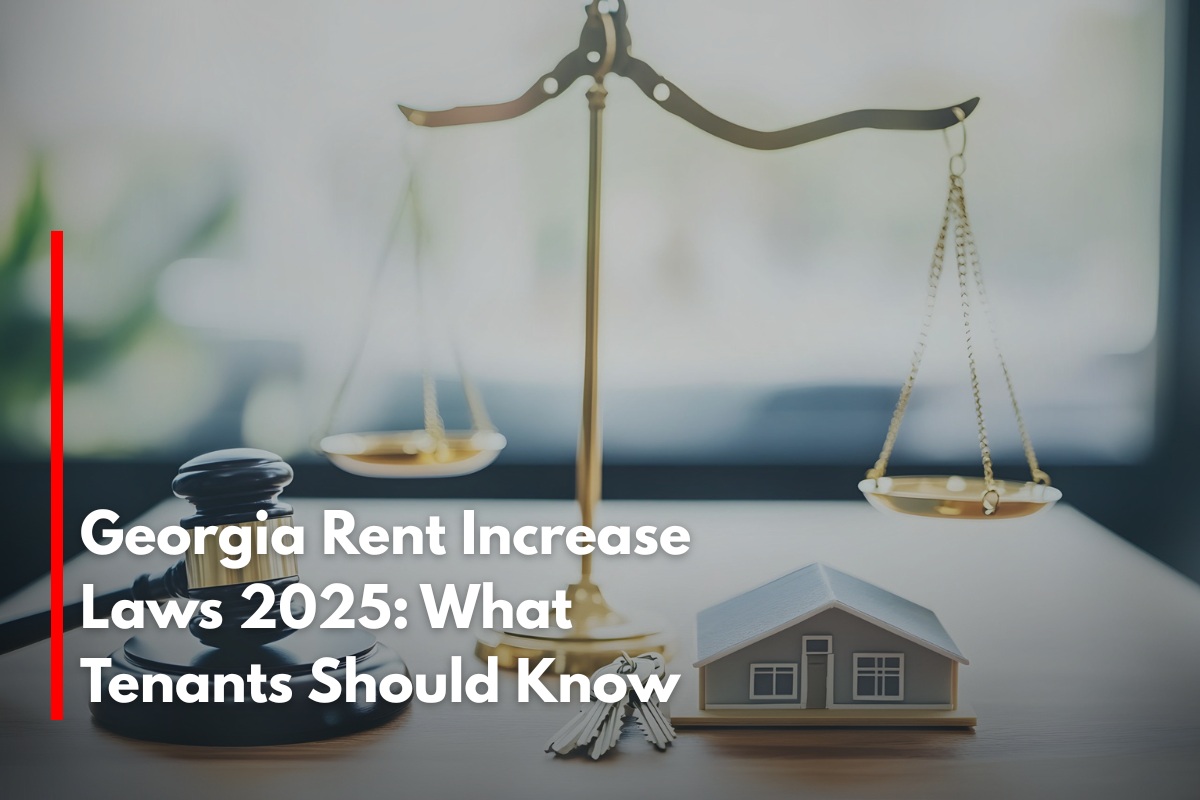Georgia’s rental laws in 2025 remain among the most landlord-friendly in the nation. While there have been some new tenant protections, the state does not have rent control, and landlords retain broad discretion to set and increase rent. Here’s what tenants need to know:
No Statewide Rent Control
No cap on rent hikes: Georgia law does not limit how much a landlord can increase rent when a lease expires or during a month-to-month tenancy. Increases can be substantial, and there is no maximum percentage or dollar amount set by law.
Market-driven pricing: Rent is determined by market demand, property costs, and landlord discretion. In hot markets, increases of 10–20% are not uncommon, though the average is typically 3–5% per year.
Notice Requirements
60-day written notice: For month-to-month leases, landlords must provide at least 60 days’ written notice before any rent increase takes effect.
Fixed-term leases: No rent increase is allowed during the term of a fixed lease unless the lease specifically allows for it. Increases can only occur at the end of the lease term, with proper notice.
Notice content: The notice must clearly state the new rent amount and the effective date. Verbal notices are not legally sufficient.
Retaliation and Discrimination Protections
No retaliatory increases: Landlords cannot raise rent in retaliation for tenants exercising legal rights, such as requesting repairs or joining a tenant group. Any increase within three months of such actions may be considered retaliatory and is prohibited.
Fair Housing Act compliance: Rent increases cannot be based on a tenant’s race, gender, religion, family status, disability, or other protected characteristics.
Recent Legal Changes for 2025
Minimum habitability standards: The new “Safe at Home Act” requires landlords to provide safe, habitable housing. Tenants now have legal recourse if a landlord fails to maintain the property.
Security deposit cap: Security deposits are now capped at no more than two months’ rent, making it easier for tenants to secure housing.
Special protections for seniors: House Bill 938 restricts rent increases for tenants aged 62 and older who primarily rely on Social Security or disability benefits.
What Tenants Can Do
Negotiate: Tenants can try to negotiate a smaller increase, especially if they have a good payment history or have been in the property long-term.
Move out: If a rent increase is unaffordable, tenants have the right to move out at the end of their lease after giving proper notice.
Legal action: If a rent hike is retaliatory, discriminatory, or if the property is not habitable, tenants can seek legal remedies.
Quick Reference Table
| Situation | Rule/Requirement |
|---|---|
| Rent increase amount | No cap; market-driven |
| Notice for month-to-month leases | 60 days written notice |
| Notice for fixed-term leases | No increase during lease unless allowed by lease |
| Retaliatory/discriminatory hikes | Prohibited |
| Security deposit | Max 2 months’ rent |
| Special protection (seniors) | Restrictions on increases for some seniors |
| Habitability standards | Landlords must maintain safe, livable property |
Georgia tenants in 2025 should be aware that rent increases can be significant and are largely unregulated, but landlords must provide proper notice and cannot increase rent for retaliatory or discriminatory reasons. New laws also provide stronger habitability protections and some relief for seniors.
Sources:
[1] https://www.hemlane.com/resources/georgia-rent-control-laws/
[2] https://www.steadily.com/blog/rent-increase-laws-regulations-georgia
[3] https://www.turbotenant.com/rental-lease-agreement/georgia/laws/rent-control/
[4] https://newsilver.com/the-lender/what-is-a-reasonable-rent-increase/
[5] https://www.doorloop.com/laws/georgia-rent-increase-notice











